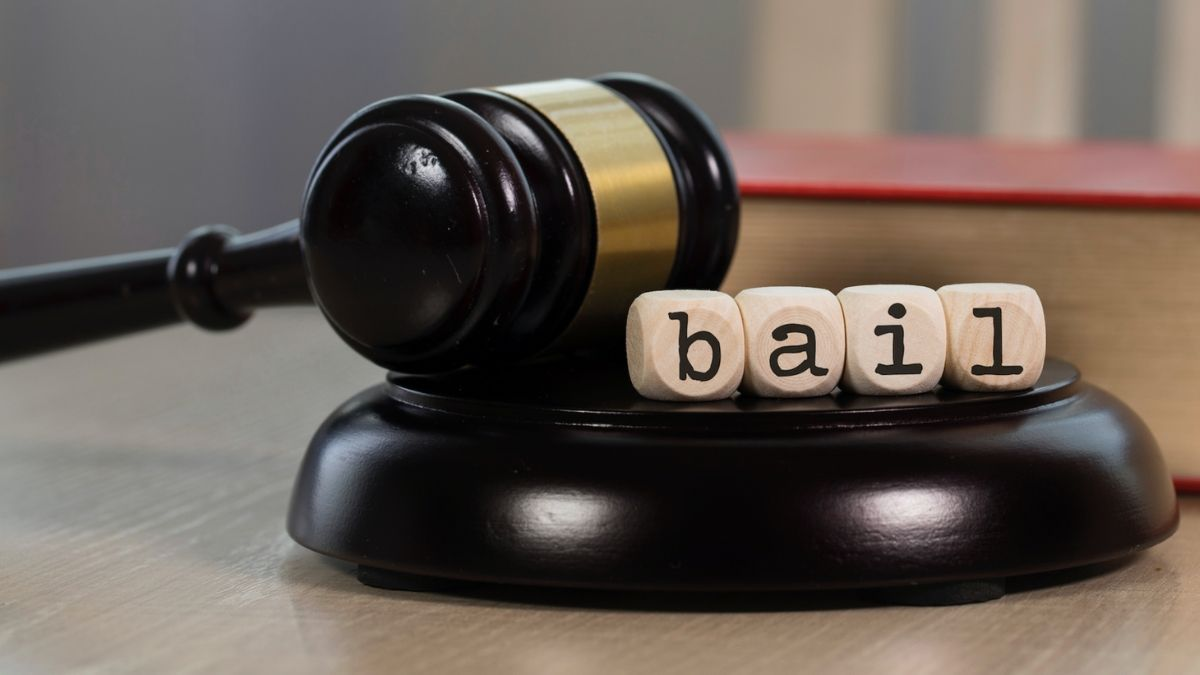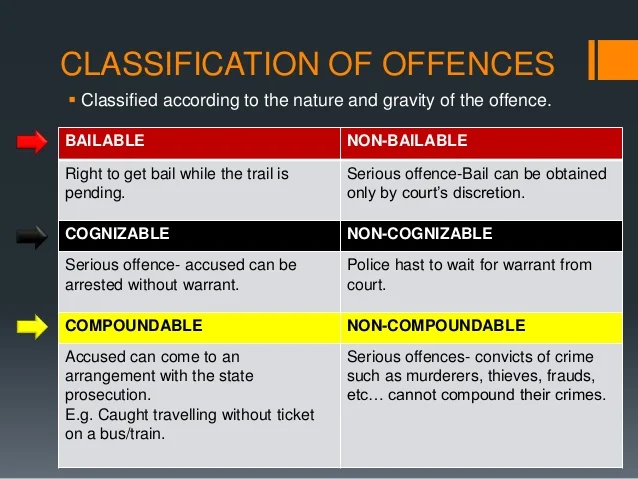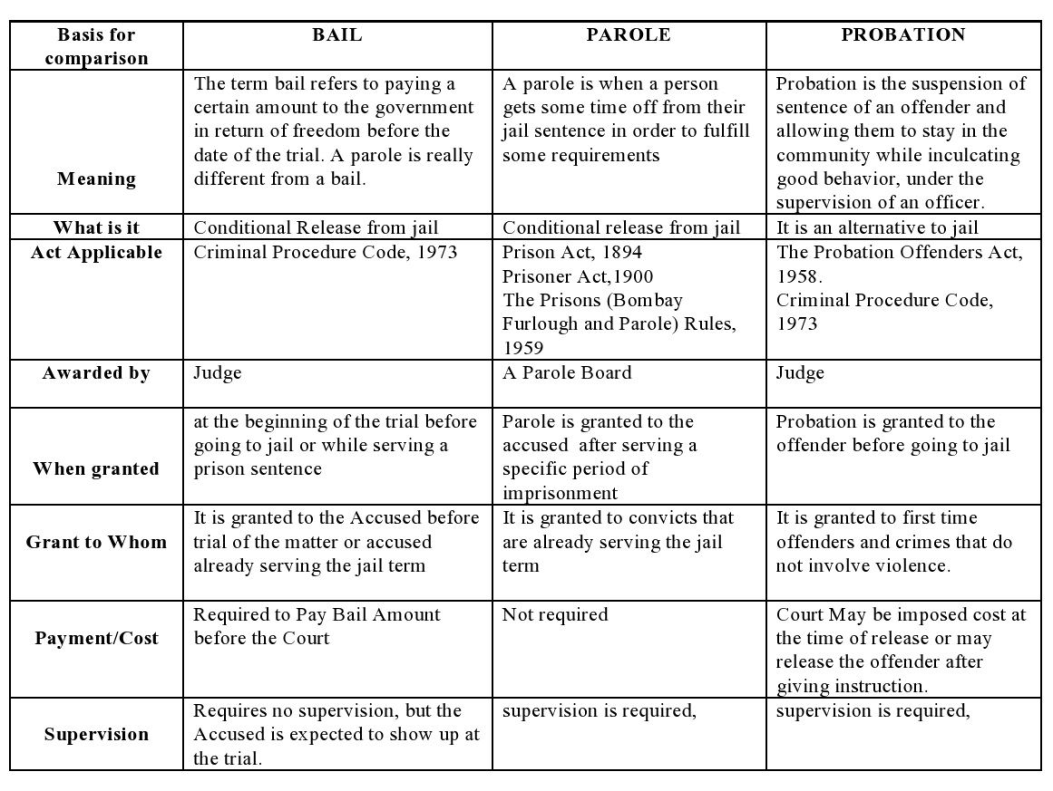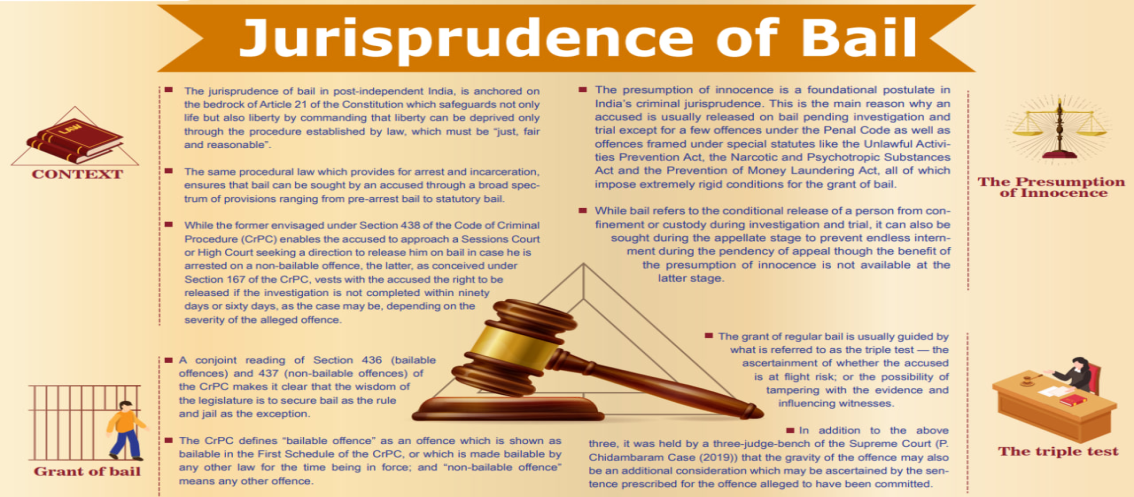Description

Copyright infringement not intended
About:
- The Supreme Court of India while hearing an appeal by the central probe agency challenging the Telangana High Court said the Grant of default bail will not operate as an absolute bar to canceling it once the charge sheet is filed and the same can be considered if a strong case is made out.
- A Supreme Court bench said this while asking the Telangana High Court to reconsider a CBI plea for cancellation of bail granted to an accused in connection with the murder of a former Andhra Pradesh minister.
Background:
- The Code of Criminal Procedure (CrPC) was drafted in 1882 and it continues to be in use with amendments from time to time.
- The CrPC does not define the word bail in the draft but only categorizes offences under the Indian Penal Code (IPC) as ‘bailable’ and ‘non-bailable’.

Default bail:
- A Magistrate can order an accused person to be detained by the Police for 15 days; the Magistrate can authorize the extension of the detention of the accused person in judicial custody if necessary. However, the accused cannot be detained for more than:
- 90 days when an authority is investigating an offence punishable with death, life imprisonment or imprisonment for at least 10 years; or
- 60 days, when the authority is investigating any other offence.
- A bail is granted because of the default of the investigating agency in not completing the investigation within the specified time, and it is referred to as ‘default bail’.
- After the period of 90/60 days, if the investigation has not been completed and the charge sheet has not been filed, the accused person has the right to be released on bail as long as he/she applies for bail and agrees to fulfill other bail conditions.
- Article 21 of the Indian Constitution provides everyone with the fundamental right to life and personal liberty. No person can be deprived of life or personal liberty except according to the procedure established by law, and such a procedure cannot be arbitrary, unfair or unreasonable.
- The safeguard of ‘default bail’ is linked to Article 21.
.jpeg)
Bail Provisions under the Indian Law:
- Bail is the temporary release of the accused in a criminal case in which the court has a trial pending and is yet to announce the judgement.
- Bail is granted to the convicted person after submitting a personal bond or assurance to follow the conditions imposed by the court.
- A person can apply for bail, at the moment he/she is arrested.
- The accused can get bail for a non-bailable offence.
- Bail can be obtained from Sessions Court or High Court, depending upon the seriousness of the offence the accused is charged with and the discretion of the court.
- For a bailable offence: A person doesn’t need to go to court, as it is given by the Police Officer.

Copyright infringement not intended
TYPES OF BAIL IN INDIA:
- Regular Bail is granted to the person who has been arrested or is in police custody.
- Interim Bail is a short-term bail granted for a short period.
- It is granted before the hearing for the grant of anticipatory bail.
- Anticipatory Bail; A person can apply for anticipatory bail when he/she finds out that he or could be arrested for a non-bailable offence.
- At the time of granting anticipatory bail the Court imposes certain terms and conditions which if violated, the Court may cancel the anticipatory bail.

Copyright infringement not intended
Significance of Bail Provisions:
- Bail is an essential element of any criminal justice system, as it guarantees the right to a fair trial for the accused.
- It is needed to safeguard the fundamental right to liberty, as mentioned under Article 21 “No person shall be deprived of their liberty unless prescribed so by a reasonable, fair, and just procedure”.
- According to the Supreme Court of India, Bail is a measure to balance the personal freedom of the accused and the public interest. Therefore the release is conditional.

Disclaimer: Copyright infringement not intended.
Way Forward:
- The Indian Constitution under Article 21 guarantees the right to life and personal liberty to every individual. A person is assumed to be innocent unless proven guilty. Therefore he/she shall not be deprived of personal liberty unless specified by a fair and just procedure.
- Bail is a mechanism that secures liberty to the accused without providing any unjustified benefit to them. However, it has been scrutinized that the practice of granting bail is quite irregular and unclear.
- There are several judgments where the Supreme Court has observed that each case needs to be examined for its facts and circumstance before granting bail.
- The rationality behind granting or refusing bail petitions must be to establish a balance between individual rights and the interest of society.

https://indianexpress.com/article/india/default-bail-cancellation-can-be-considered-on-merit-says-sc-8385859/














